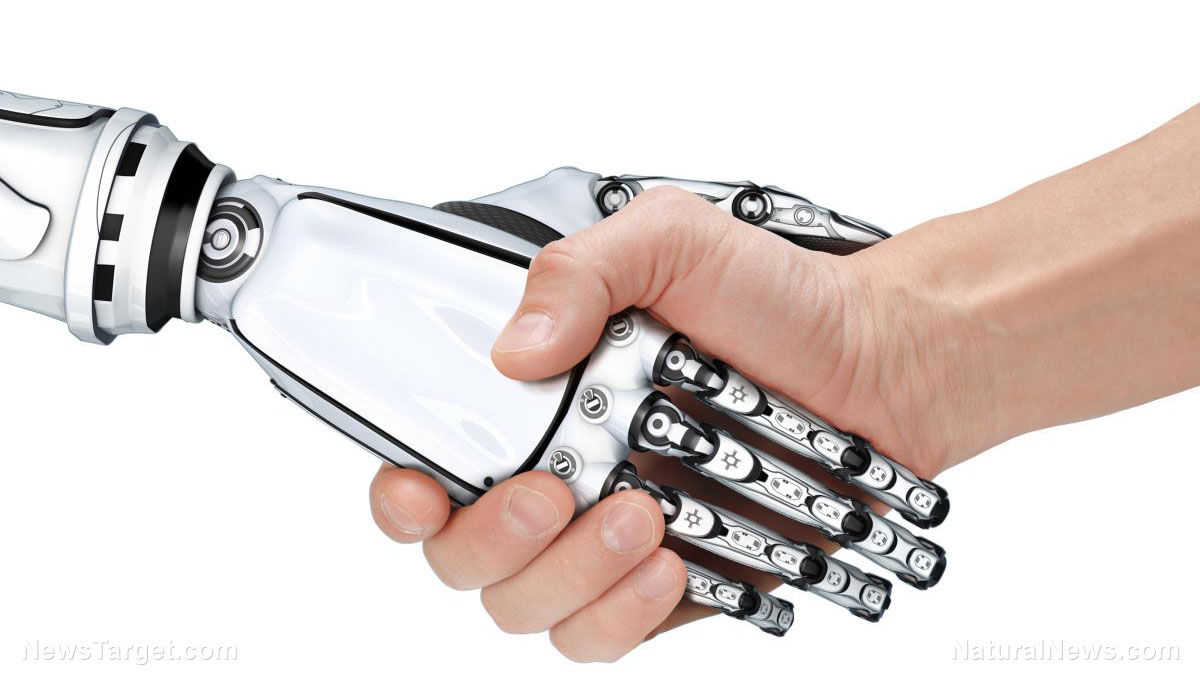Walmart converting 65% of its stores to “automation” – human employees will be let go
04/06/2023 / By Ethan Huff

At its annual investor meeting in Tampa, retail giant Walmart announced that over the next three years, it plans to convert 65 percent of its stores to a model of “automation.”
In addition to laying off about 2,000 factory workers in the shorter term, the $388 billion multi-national corporation is eager to trim many more human employees in the coming years as it switches to a robot service format.
Currently, Walmart employs about 1.7 million people in the United States, along with another 60,000 people elsewhere. The goal is to eliminate as many of these positions as possible in order to replace them with automation, which the company says will increase its profits.
“As the changes are implemented across the business, one of the outcomes is roles that require less physical labor but have a higher rate of pay,” the Bentonville, Ark.-based retailer indicated in a filing.
“Over time, the company anticipates increased throughput per person due to the automation while maintaining or even increasing its number of associates as new roles are created.”
(Related: Walmart is a major contributor to America’s worsening opioid crisis.)
By January 2026, more than half of all packages processed through Walmart fulfillment centers will be handled by robots
To compete with Amazon, Walmart is slashing jobs left and right – remember when it used to brag about slashing prices? – and working towards automating pretty much everything except for the highest-paid corporate positions.
By early 2026, the company wants to have 55 percent of the packages it processes at fulfillment centers handled by automated robots rather than real humans. This is expected to improve unit cost averages by about 20 percent.
“This increased efficiency will not only support better inventory management, but it will also support Walmart’s rapidly growing e-commerce business,” wrote Stephens Inc. analyst Ben Bienvenu in a note about these developments.
One thing that Walmart refuses to answer are questions about whether these changes will result in any further layoffs beyond those that have already been announced.
Many Walmart employees are worried about their low-paying jobs going kaput as company executives, eager to please shareholders while lining their own pockets, search for new ways to keep the charade going amid a collapsing economy.
The company has already invested billions of dollars in new technology for its online order facilities, including the recent purchase of grocery robotics company Alert Innovation. Walmart is also partnering with companies like Knapp to reduce the number of steps it takes for employees to process e-commerce orders from 12 down to just five.
CEO Doug McMillon said in a post-earnings call back in February that he is “most excited about the automation opportunity we have” that includes more than $15 billion in capital spending on automation technology.
“I do not like this trend at all,” one commenter wrote about these developments. “It stinks for the customers and the staff. The only ones to benefit are the owners.”
Another highlights McMillon’s lavish annual salary, which increased in 2021 to nearly $26 million.
“Gee, maybe with AI and robots, they can do away with his outrageously overpaid position,” this person said.
“It’s all about the money,” said another in disgust. “Who gives a hoot about the poor working man, right?”
Numerous others blasted Walmart for being a piss-poor retailer to begin with, complete with dingy, unkempt stores, generally unhappy employees, and a track record of anti-American, pro-China policies.
“Time to learn robot repair! – DeVry Institute,” joked another commenter about how the only jobs left when the fat cats are done raping the country will be for repairing all these automation devices – unless they can figure out how to automate that, too.
The latest news about the breakdown of American corporations as the world moves towards a major depression is available at Collapse.news.
Sources for this article include:
Submit a correction >>
Tagged Under:
automation, bubble, Collapse, computing, conspiracy, corporate greed, customer service, cyber war, cyborg, economic collapse, economic riot, future tech, Glitch, grocery, insanity, layoffs, money supply, robotics, robots, Walmart
This article may contain statements that reflect the opinion of the author
RECENT NEWS & ARTICLES
COPYRIGHT © 2017 ROBOTS NEWS

















